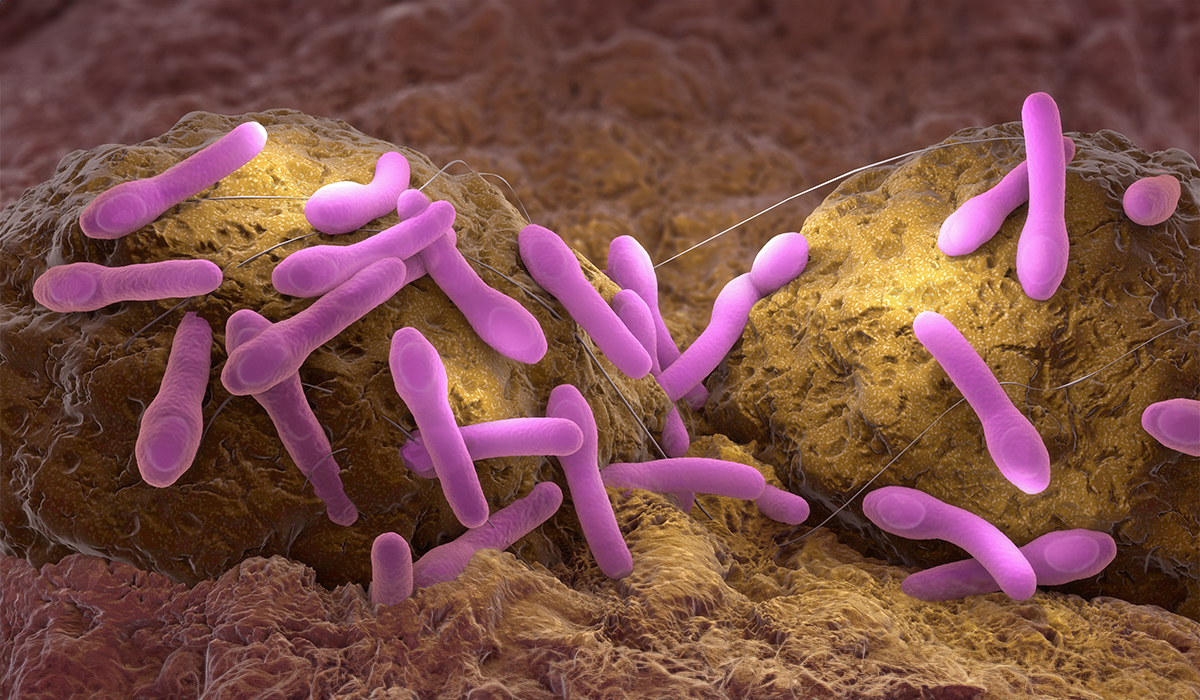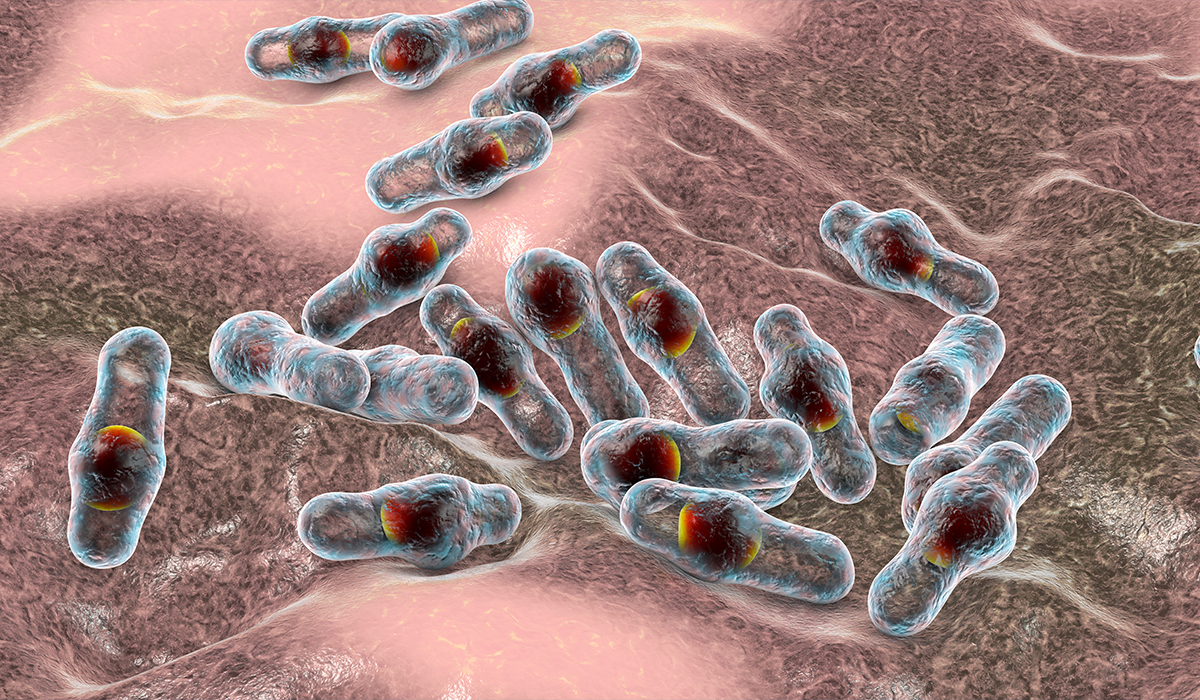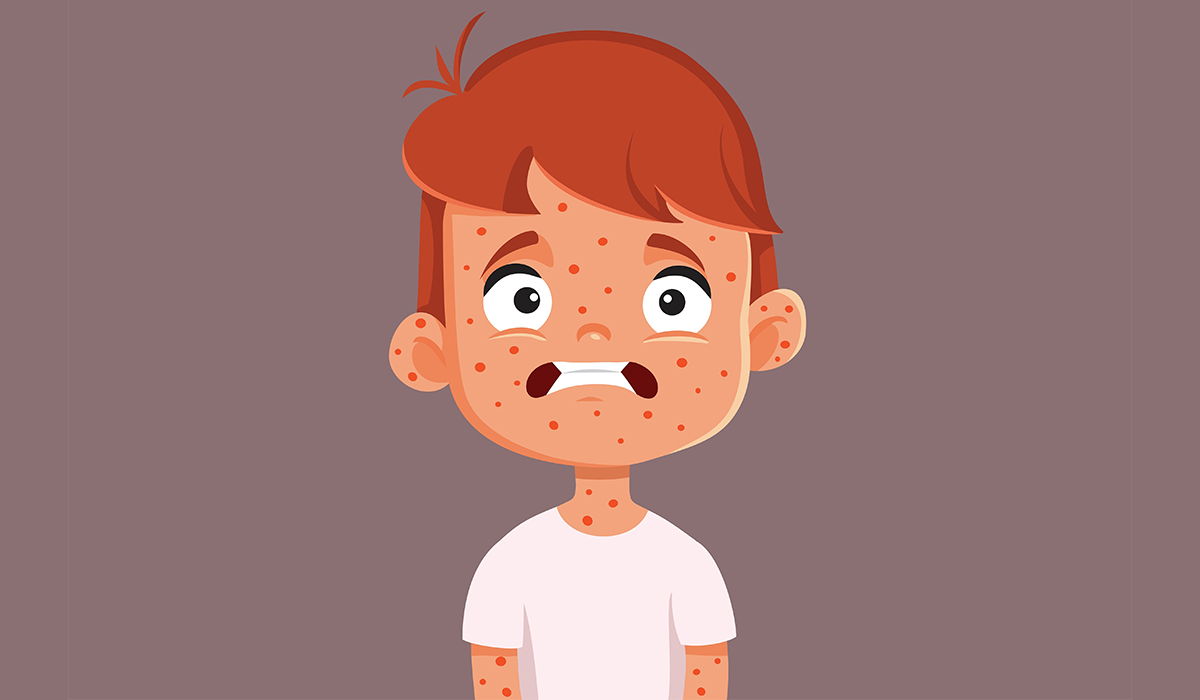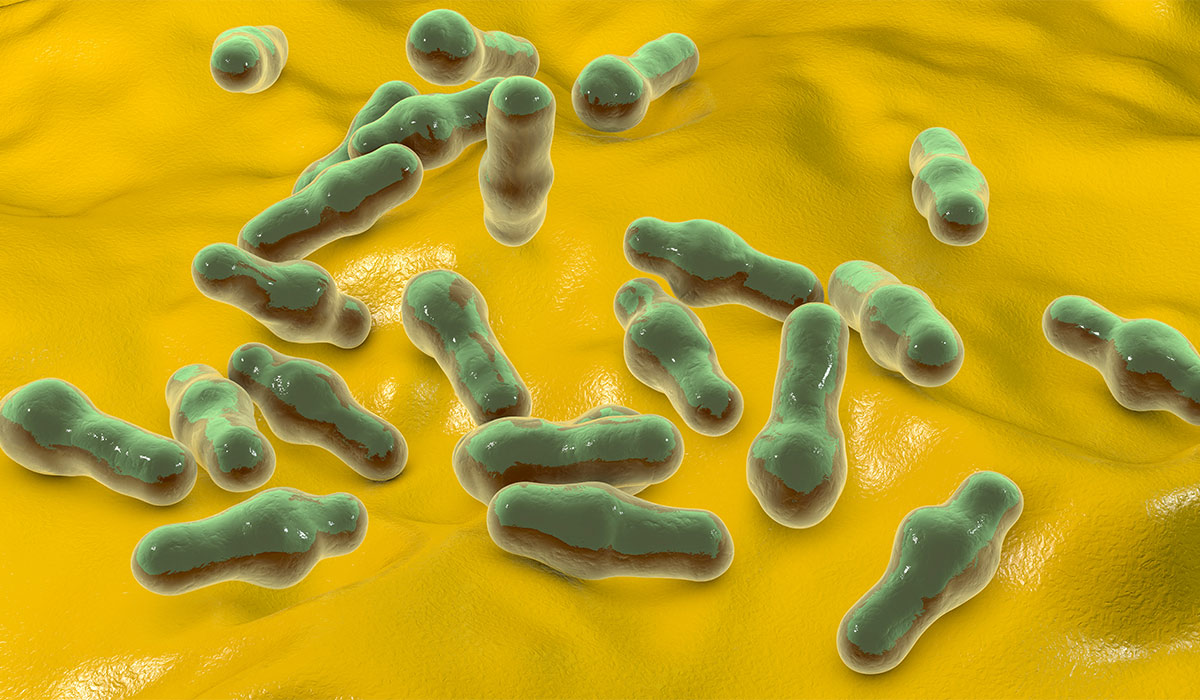Also known as lockjaw, tetanus is an infectious disease spread by spores of Clostridium tetani bacteria, which can be found everywhere in the environment. The spores are toxic to humans and may affect the nervous system, leading to such symptoms as painful muscle spasms, difficulty swallowing, muscle rigidity, and headaches.
Without treatment, lockjaw may lead to severe symptoms and even life-threatening complications. According to the Centers for Disease Control and Prevention, it can lead to the development of laryngospasm, pulmonary embolism, aspiration pneumonia, and fractured bones. Of all cases of tetanus, 10 to 20% are fatal.
Fortunately, tetanus is not as dangerous condition as it used to be in the past. We can see the noticeable improvement in overcoming this disease when comparing the number of fatal cases since the 1950s. For instance, according to the estimations, 787,000 newborns died from tetanus in 1988. This number declined by 97% in 2018, leading to 25,000 deaths of newborn babies.
The decline in fatal cases of tetanus, as well as severe symptoms and complications, is due to the advances in immunization with TTCV -tetanus-toxoid-containing vaccines. Although the vaccine does not cure tetanus and needs to be used once every few months by kids or years by adults, it helps prevent the infection from developing again.
Despite the success in limiting the effects of tetanus on humanity, it still is a public health problem that needs to be resolved in some parts of the world. Tetanus-prone areas, including low-income countries or districts with poor basic sanitation practices, are at the highest risk of infection. Moreover, the lack of clean practices in certain countries, particularly in South Asia and Sub-Saharan Africa, leads to more deaths from neonatal tetanus than in other parts of the world.
Continue reading the article to learn more about lockjaw, including causes, risk factors, symptoms, treatment, and ways to prevent future infections.
Spores of the bacteria Clostridium tetani![]() are present in many nooks and crannies of the environment. They are most commonly found in soil, dust, ash, feces of animals and humans, on the skin surface, and the plethora of rusty objects such as nails, wires, and needles. They can survive for a long time because they resist heat, antiseptics, and harsh environmental conditions.
are present in many nooks and crannies of the environment. They are most commonly found in soil, dust, ash, feces of animals and humans, on the skin surface, and the plethora of rusty objects such as nails, wires, and needles. They can survive for a long time because they resist heat, antiseptics, and harsh environmental conditions.
Tetanus develops when spores of Clostridium tetani enter a person's bloodstream. It may happen if you get wounded or injured, creating an opening on the skin. The most common types of injuries include:
Less commonly, tetanus may be caused by:
After you get infected with spores, you may develop symptoms within 14 days. It may affect anyone, but most cases are newborns and mothers who didn't receive a tetanus-toxoid-containing vaccine.
Once the spores enter the body, they spread to the central nervous system, producing tetanospasmin – a toxin that disrupts the communication between the muscles and the spinal cord, leading to muscle spasms and other symptoms.

Tetanus is not transmitted through respiratory droplets, direct contact, bodily fluids, or other means of person-to-person interactions. It is primarily associated with cuts, puncture wounds, and burns that may get exposed to the bacteria. Therefore, you cannot “catch” tetanus from someone with the disease.
In the previous paragraphs, you learned that the bacteria Clostridium tetani spores may enter your bloodstream and potentially lead to tetanus. But what exactly are bacteria spores, and why can they be found almost everywhere?
Spores are small oval structures resistant to harsh environmental conditions, including radiation, high temperatures, and chemical agents. Bacteria produce spores for various reasons, such as reproduction or defense.
Not all types of bacteria create spores. Examples of species that produce spores are Clostridium tetani, Bacillus, and Sporosarcina. If a specific bacteria can thrive in many places, including unfavorable environmental conditions, their spores are widespread.
People not vaccinated for tetanus and those who don't take 10-year booster shots are at the greatest risk of developing tetanus infection. Other factors that increase the chance of tetanus infection include:
The higher number of tetanus cases has also been linked to:
Symptoms of tetanus may appear between 3 and 21 days, but 14 days is the most often observed incubation period. The most common type of tetanus is generalized tetanus, while localized tetanus and cephalic tetanus are two less common versions of this disease.
Generalized tetanus may cause the following symptoms:
Seizure-like spasms lasting up to a few minutes are called generalized spasms. As the disease progresses, it occurs more frequently and may be triggered by physical touch, loud sounds, and light. Breathing problems may also develop due to the neck and abdomen muscle rigidity.
You may develop other health problems in the later stages of generalized tetanus. These may include:

Localized tetanus is rare in which muscle spasms occur near the wound. It is usually mild and rarely severe but may develop into generalized tetanus.
Another rare type of tetanus is cephalic tetanus, which develops due to a head wound. Its symptoms include spasms of the jaw muscles and weakened muscles in the face. Like localized tetanus, it may progress to generalized tetanus.
Tetanus may lead to serious health complications, and these include:
Doctors diagnose tetanus based on physical examination, medical history, signs of muscle spasms and muscle rigidity, and whether you received a vaccine against this disease. Laboratory tests are rarely needed to confirm tetanus. However, if doctors suspect another health condition, they may order lab tests to rule out conditions that mimic tetanus.
One such condition is meningitis, an infection caused by bacteria, viruses, or, in rare cases, fungi. Meningitis affects the spinal cord and the brain, leading to seizures, sensitivity to light, stiffness, fever, and headaches.
A viral disease called rabies may also cause similar symptoms to tetanus. In mammals, it infects the central nervous system, causing brain disease. A vaccine can prevent it, but once the symptoms develop, there are no effective treatments against this condition.
Although tetanus has no cure, several treatment options exist to help manage symptoms until the disease progresses. Treatment usually combines wound care, medications, and a variety of therapies. However, you will need immediate medical attention once tetanus starts, usually in an intensive care unit.
Medicines used to treat tetanus are as follows:
Wound care is an important part of treating tetanus. It involves cleaning your wound from dirt and foreign objects that may contain bacteria. Your care team performs wound care during the hospitalization period.
Preventing tetanus, also known as lockjaw, is crucial to avoid the potentially severe and life-threatening complications of this infectious disease. The most effective way to avoid tetanus is through vaccination with tetanus-toxoid-containing vaccines (TTCV)![]() . Since their widespread use, these vaccines have significantly reduced the occurrence of tetanus and its associated mortality rates.
. Since their widespread use, these vaccines have significantly reduced the occurrence of tetanus and its associated mortality rates.
Here are the most effective ways to prevent tetanus:
Vaccination: Make sure that you and your children receive the recommended tetanus vaccinations. Vaccinations are typically administered in childhood and require booster shots every ten years to maintain immunity. If you have a wound that could expose you to the bacteria, a healthcare provider may also recommend a booster shot if it has been more than five years since your last vaccination.
Wound care: Practicing proper wound care is also essential to prevent tetanus. Clean and disinfect any wounds or injuries as soon as possible, especially when they involve soil, manure, or contaminated materials and objects. Seek medical attention for deep, punctured, or dirty wounds.
Good hygiene: In addition, promote good hygiene practices to minimize the risk of infection further. Practice regular handwashing with soap and water, particularly after handling soil or dirt and before eating or preparing food.
Avoid Risky Activities: Be cautious when engaging in certain activities that may increase the risk of injury, such as handling sharp objects, engaging in outdoor activities that might lead to wounds, or practicing activities that involve potential exposure to bacteria-rich environments.
Remember that while tetanus is less common in many parts of the world today, it remains a public health concern in certain regions. Staying informed about vaccination recommendations and adhering to safe practices can significantly reduce the risk of contracting this potentially dangerous disease.
Most people who undergo treatment recover from tetanus. According to the Centers for Disease Control and Prevention (CDC), only 11% of tetanus cases have been fatal in recent years. The mortality rate is higher in older adults, children, and people who didn't receive the vaccine. Overall, the outlook for tetanus patients improves if they have previously been vaccinated and received treatment early.
If you think you may have tetanus, seek medical attention as soon as possible. Even if you got tetanus once, it is possible to develop it again if a tetanus-toxoid-containing vaccine does not protect you.
Tetanus, also known as lockjaw, is an infectious disease caused by Clostridium tetani bacteria spores, affecting the nervous system. Tetanus spores are commonly found in soil, dust, feces, and on rusty objects. Infection occurs when spores enter the bloodstream through wounds or injuries. It is not a contagious disease and does not spread through person-to-person contact.
Tetanus can lead to pneumonia, breathing issues, pulmonary embolism, bone fractures, abnormal heart rhythms, and death, particularly in older and unvaccinated adults.
It is typically diagnosed based on clinical symptoms and vaccination history. Lab tests may be ordered to rule out other conditions. While there's no cure, lockjaw's symptoms may be relieved thanks to several treatment options, which include antibiotics, sedatives, antitoxin therapy, and vaccination. Proper wound care is also an essential part of the treatment.
Tetanus has become less common thanks to vaccines, but it remains a concern in low-income areas and among those who are not vaccinated or at higher risk.
Table of Contents

Botulism is a rare but dangerous disease that can lead to death. Find out how to avoid it. Learn about… read more »

The vaccine imitates a natural infection and leads to the development of immunity similar to that obtained during the first… read more »

Anxiety is an an emotional state characterized by a sense of insecurity and undefined discomfort. Check out, what are its… read more »

Gangrene is tissue necrosis caused by infection with anaerobic bacteria. How to recognize this disease? What does treatment and prevention… read more »

Measles is an infectious disease caused by the Measles virus, which belongs to the Paramyxoviridae Family. Mostly children are infected,… read more »

Necrosis refers to the death of cells constituting a body tissue. Dead or necrotic tissue can occur when blood supply… read more »

Rabies is a viral disease that, in humans, is usually fatal. Vaccinations can successfully prevent it. What are its symptoms?… read more »

Anxiety is characterized by persistent worry and fear that are more intense that they would normally be. What are its… read more »

Typhoid fever is a disease that is still a threat in some countries. Travellers are therefore at risk. Learn about… read more »